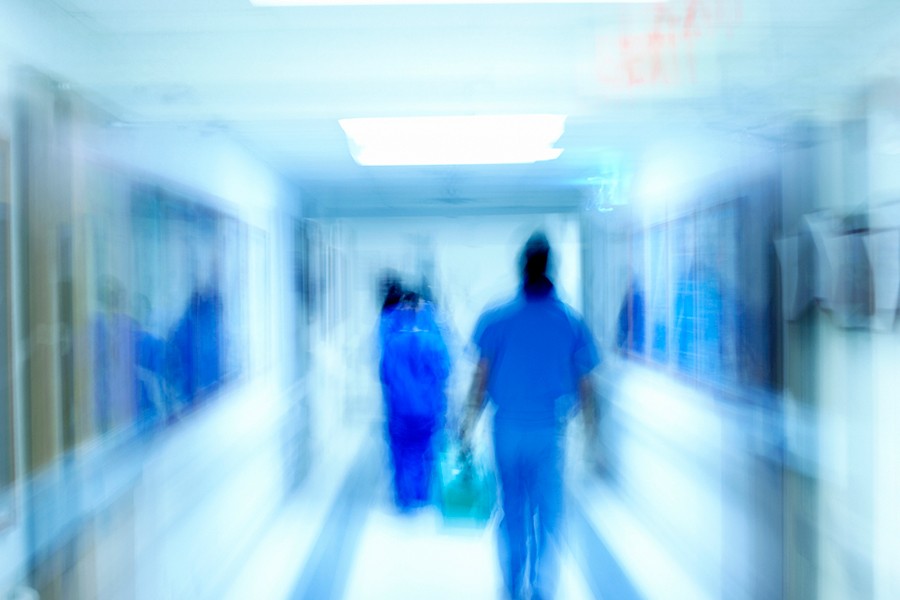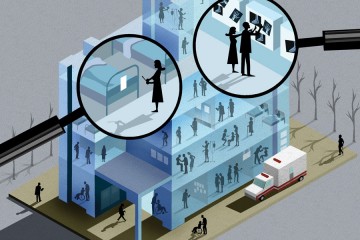In a commentary published ahead of print Sept. 8 in BMJ Quality & Safety, a team from The Johns Hopkins Hospital calls on hospitals to reform potentially dangerous medical protocols involving food and sleep deprivation that can exacerbate illnesses in seriously ill patients.
The authors are surgeon and prominent patient safety research Martin Makary, surgeon Elizabeth Wick, and Tim Xu, a public policy expert and student at JHU's School of Medicine.
In their commentary, the authors describe what they say is a typical case of a 65-year-old woman who develops pneumonia at home and feels too sick to eat or drink much for several days. She then goes to the emergency room, where medical personnel withhold food in case she needs certain invasive tests or surgery. If needed, surgery might add more days without food and little sleep, owing to continuous monitoring and noise inside and outside of her hospital room. Adding to sleep problems, many lights remain on, particularly in the emergency department, and lab draws of blood occur at all times of day and night.
The authors point out that healthy people can develop weakened immune systems, dangerous fatigue, and impaired judgment within 24 hours if subjected to this level of sleep deprivation and lack of nutrition.
"Subject sick or elderly individuals to those same conditions and each next medical intervention becomes more dangerous as their illness takes a turn for the worse," Makary says.
Much of the food and sleep deprivation patients experience is unnecessary, the authors say, citing research showing that food needs to be curtailed only six to eight hours before surgery and drinks just two hours before. Reducing sleep deprivation poses a more complex challenge, but hospitals can improve protocols by conducting noise studies, encouraging patient feedback, and intervening in smaller ways, such as providing eye masks or gentle music in patient rooms.
Under a protocol dubbed Enhanced Recovery After Surgery, already used at The Johns Hopkins Hospital for many operations, patients scheduled for surgery are prescribed a carbohydrate-rich sports drink two hours before the procedure to mitigate the stress of fasting. The approach also includes limiting the use of intravenous feeding and a faster return to normal feeding, all of which can reduce the average length of stay and ultimately the average cost of treatment.
Johns Hopkins also updated its practices to facilitate sleep. Lab draws, which used to occur at any time of day or night, now occur only during the day, and the hospital eliminated overhead paging on clinical units to reduce sleep disturbance. Most patients stay in private rooms to cut down on environmental noise in shared rooms.
"Avoidable starvation and induced sleep deprivation are ubiquitous in health care. It's no surprise that these factors influence patient outcomes," Makary says. "We should view hospitals as healing environments rather than isolated clinical spaces and design patient care accordingly."
Read more from Hopkins MedicinePosted in Health, Voices+Opinion










